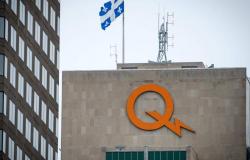The United States on Wednesday prevented the UN Security Council from calling for an “immediate, unconditional and permanent” ceasefire in Gaza, a new veto in support of their Israeli ally.
The draft text which received 14 votes for and one against required “an immediate, unconditional and permanent ceasefire which must be respected by all parties” et “the immediate and unconditional release of all hostages”.
“We have been very clear during all negotiations that we cannot support an unconditional ceasefire that does not allow the release of the hostages,” justified after the vote the deputy American ambassador Robert Wood, believing that the Council would have, by this resolution, sent to Hamas “the dangerous message that there is no need to return to the negotiating table.”
The draft resolution, which received 14 votes for and one against, had provoked Israel’s anger in advance. This text “is only a betrayal”, denounced Israeli Ambassador to the UN Danny Danon just before the vote, counting on Washington to block an adoption which would mean for him a “abandon” hostages.
The reactions
There is no “no possible justification” to the American veto of a draft resolution of the United Nations Security Council for a ceasefire in Gaza, intended to “stop the atrocities”, declared Wednesday the deputy Palestinian ambassador to the UN.
The Palestinian Islamist movement Hamas, for its part, accused the United States of being “directly responsible” of the “genocidal war” of Israel in the Gaza Strip, after this new veto.
“Once again, the United States shows that it is a direct partner in the aggression against our people, that it is criminal, killing children and women, destroying civilian life in Gaza, and that it is directly responsible for genocidal war and ethnic cleansing, as well as the occupation” (Israel, Editor’s note), Hamas reacted in a press release.
Chinese President Xi Jinping also called for a ceasefire in the Gaza Strip and “end the war quickly”reported the official Xinhua news agency. He said to himself “concerned by the continued extension of the conflict in Gaza” and called for the implementation of the two-state solution and “relentless efforts towards a comprehensive, just and peaceful settlement”.
The difficulties of the UN
Since the start of the war, the UN Security Council has struggled to speak with one voice, blocked several times by American, but also Russian and Chinese, vetoes.
The few resolutions adopted did not call for an unconditional and permanent ceasefire. In March, with American abstention, the Council requested a one-off ceasefire during Ramadan – without effect on the ground – and in June adopted an American resolution supporting an American ceasefire plan. -fire in several phases accompanied by releases of hostages, which was never successful.
Some diplomats hoped that after Donald Trump’s victory, Joe Biden’s United States would be more flexible in negotiations, imagining a repeat of December 2016.
A few weeks before the end of Barack Obama’s mandate, the Council then adopted, for the first time since 1979, a resolution asking Israel to cease colonization in the Occupied Palestinian Territories. A vote made possible thanks to the decision of the United States not to use its right of veto, even though it had always supported Israel until then on this issue.
Conflict in the Middle East tensions in the Middle East Middle East Gaza Israel UN ceasefire Israeli-Palestinian conflict






